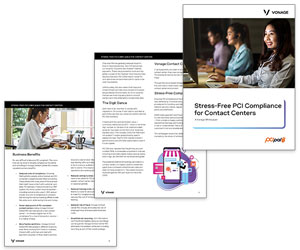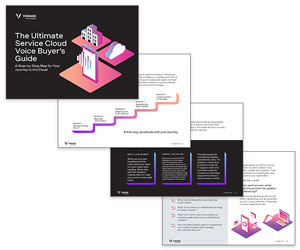What is Hosted Call Recording?
In its simplest terms, hosted call recording is a service offered by a third-party provider that enables organisations without their own technical infrastructure to record calls on a contracted or per-usage basis using hardware and software maintained and updated by the host.
How it works
Technology
The methods of call recording used by third-party hosts depend on the telephony type – time division multiplexing (TDM) or Internet Protocol (IP) – and the technology used by the host.
When recording TDM environments, a physical connection is required for each trunk. Carrier networks are now migrating to IP-based cores, however, and it is therefore increasingly possible to provide TDM-hosted recording by using a TDM overlay service that converts traffic in the network to IP. This essentially allows calls to be recorded using an IP-compatible recorder and simplifies recording as IP-based systems do not need physical network taps inserted to record calls.
IP recording uses two methods to capture calls. The first is packet capture using mirrored ports in the carrier’s network. This is only suitable for deployments where the media is guaranteed to pass through specific network elements. It does not capture internal calls, is not a scalable solution and has limited use in a hosted environment.
The second IP recording method links to a recording interface on the carrier’s soft-switch. This can only work if an appropriate interface exists, which is not always the case, and requires the recorder vendor to develop a specific interface for the soft-switch.
A third method, specific to the hosted environment only, is to insert the call recording into the network as a back-to-back user agent (B2BUA). The implementation of recorders in this configuration has to be carefully engineered because the recorder will act as the primary media server in the network and it is therefore essential to ensure that there is sufficient resilience to make this viable.
A single recording server is not sufficient in hosted environments. If the recorder failed, live calls would terminate. The preferred method for both TDM and IP recording is therefore TDM overlay with IP recording from a dedicated soft-switch interface.*
Routing
Typically, organisations will route calls to their hosted call recording platform in one of two ways.
If the organisation only wants to use call recording on an ad hoc basis when making outbound calls, third-party hosts will recommend they pre-dial an access number before making the outbound call to switch on the recording functionality.
For organisations that want to record some or all inbound and outbound calls, pre-dialling is not an efficient option. Therefore, most hosts will ask the organisation in question to push calls through a non-geographic number – for example, an 0800 or 0300 number. Calls can then be routed via the host’s call recording platform before it reaches the terminating number – be that the customer (for outbound calls) or the organisation’s contact centre (for inbound calls).
Who’s it for?
Hosted call recording can be used by all types of businesses. However, it is particularly popular with virtual contact centre operations – where centralised functionality is required to record calls made or received by geographically dispersed agents. It is also popular with small businesses that cannot afford the capital expenditure involved with implementing, staffing and maintaining call recording in-house.
Cost
Hosted call recording is typically billed in one of two ways.
Hosts offering a ‘pay-as-you-go’ option will typically charge clients a one-off set-up charge and then bill them for recordings on a per-minute basis. Other hosts have a ‘pay-per-month’ model, where organisations pay a fixed price per user or per number.
Organisations using hosted call recording will often have to pay storage fees as well, based on the volume of call recordings required and the length of time they need to be kept.
In many cases, hosts can provide other contact centre functionality, as well as recording, on a per-agent, per-month basis. These might include an automatic call distributor (ACD), interactive voice response (IVR) and on-hold advertisements**.
Access to Recordings
Authorised personnel from the organisation whose call recordings are being hosted will usually access recordings via a web browser at a desktop PC. Each call recording will normally be indexed by date, time, dialled number and agent so that it can be easily found and scrutinised.
Security
Because many different organisations may be sharing the same server, the hosted provider should have a multi-tenanted database to ensure security. Hosted recording usually offers protection via a password and user name, similar to in-house recording, so guaranteeing that only authorised personnel can access the call recording portal.
Pros and Cons
Pros
- Hosted call recording offers a low entry price for single users. There is no capital expenditure; pricing is based on operational expenditure. This can be particularly useful for smaller organisations, those operating in a virtual environment, or those whose call volumes fluctuate on a seasonal basis.
- Upgrades to call recording technology used by the host are typically included in the pricing model.
- Hosted call recording can be installed very quickly, often within 24 hours.
- It can be a useful interim tool for organisations that are phasing out their current in-house call recorder and are looking for full call recording functionality while the new system is being implemented.
- Hosted call recording can sometimes be used in conjunction with in-call speech analytics, which makes it a useful tool for analysis and training purposes.
Cons
- If the host provider’s networks and servers aren’t fully backed-up, the user might be left without call recording functionality for a period of time if the host’s systems crash.
- Internet links from a web browser to the recordings may be subject to slow speeds, which can make it difficult and frustrating to access recordings.
- The charges associated with hosted call recording and storage can become prohibitive if large volumes of calls need to be recorded and archived. In addition, parameters are typically based around fixed retention periods, which may be inflexible to some. A site call recording box may be a better option for a single site where the hosted cost per user exceeds the cost of implementing an in-house solution.
Further Reading
Contributors
- CTI Group
- NewVoiceMedia
- Opex Hosting – the hosted call recording arm of Business Systems
- Retell
- Verint
Author: Jonty Pearce
Published On: 14th Mar 2010 - Last modified: 4th Apr 2022
Read more about - Definitions, Business Systems, Call Recording, Opex Hosting, Vonage

















